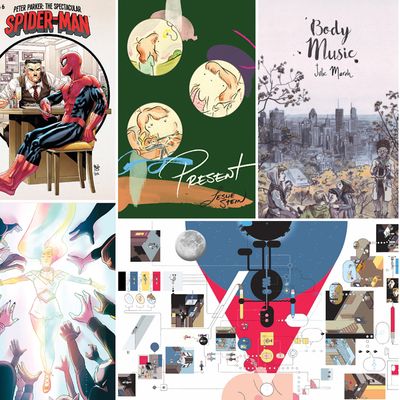
Each month, Abraham Riesman offers recommendations on comics, including book-length graphic novels, comics-format nonfiction, and ongoing series. With any luck, at least one of them will be a match for you.
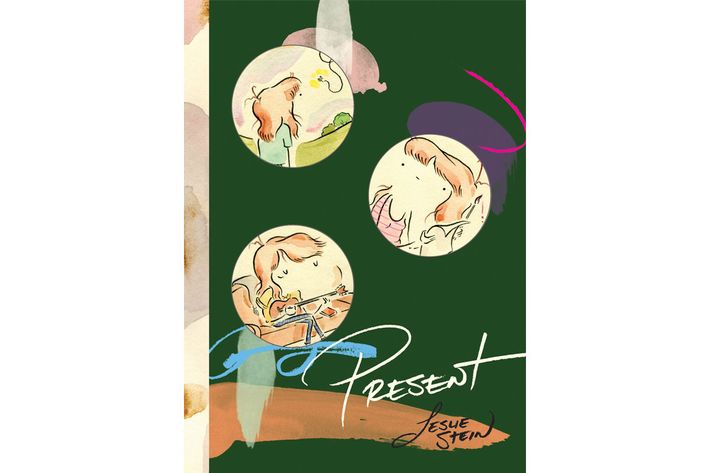
Present by Leslie Stein (Drawn + Quarterly)
One should feel thankful that Leslie Stein keeps her narratives so simple — after all, you’re reading them in a new language. In her collection of strips, Present, Stein offers up a visual approach wholly unlike anything else in the comics ecosystem today. Human heads typically consist of a pate of hair atop two eye dots separated by a colinear mouth, panel borders are implied but invisible, emotion and emphasis are added to text by streaks of watercolor behind them, and dialogue is presented not through bubbles but free-floating letters connecting to their speaker by curled and colored threads of ink. As we watch Stein recount the ins and outs of her professional and personal life, we’re tempted to let our eyes blur out and simply fall into the visuals, which I mean as a compliment. As she puts it at the conclusion of one strip, “It doesn’t matter what mark you make — it’s just about a feeling.”
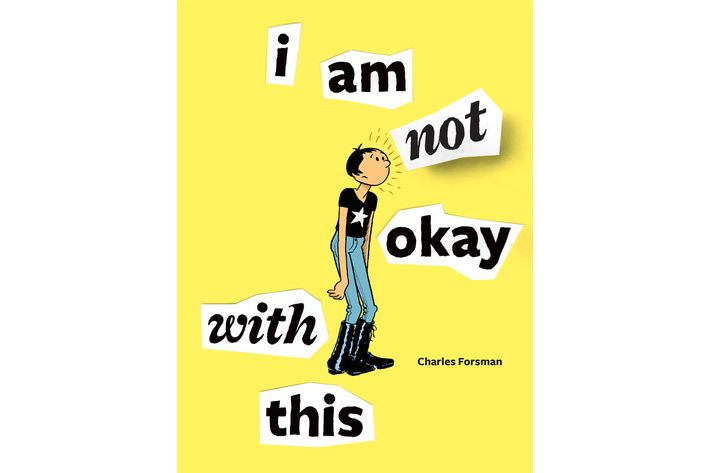
I Am Not Okay With This by Charles Forsman (Fantagraphics)
“Dear Diary, go fuck yourself” is the first line of text that appears in I Am Not Okay With This, and that mixture of the quotidian and the confrontational comes to define the narrative that subsequently unfolds. Sydney is an “ugly-skinny” teenage girl, drawn by Charles Forsman as a kind of riot-grrrl Olive Oyl, poorly navigating her 16th year on this planet while dealing with the consequences of her father’s death and the presence of her own strange telekinetic abilities. In Forsman’s thick, patchy lines, we see a vision of what the X-Men mythology might be like for a mutant who never got that reassuring visit from Professor X. The narrative is infused with abject loneliness and bonds broken, and though the final page may leave you cold, the rocky journey toward it is as insightful as it is brutal.
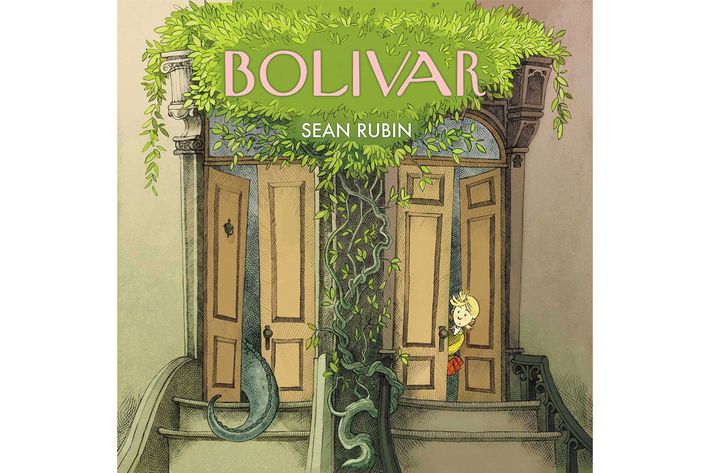
Bolivar by Sean Rubin (BOOM!)
We’re in the midst of an explosion in the market for comics aimed at young readers, and Bolivar is fine fuel for the fire. Aimed at a grade-school audience, it’s a clever hybrid of the traditional picture-book format and an outright comic book, alternating seamlessly between blocks of black text on white background and panels of word-ballooned action. It’s a sweet story about a modest dinosaur who defied extinction and is living a quiet life in New York City when a girl who lives next door discovers him. The recurring motif is the notion that everyone in NYC is far too busy to even notice that a dinosaur is in their midst, making the youngster endlessly frustrated at others’ disbelief of her find. Eventually, of course, his cover is blown and once the lizard’s out of the bag, comedic chaos breaks loose. The illustrations of this secretly magical New York are warm and textured, like a crosshatched Annie Hall, and Rubin has a gift for soothing language and gently rolling structure. This one deserves to be a bedtime staple.
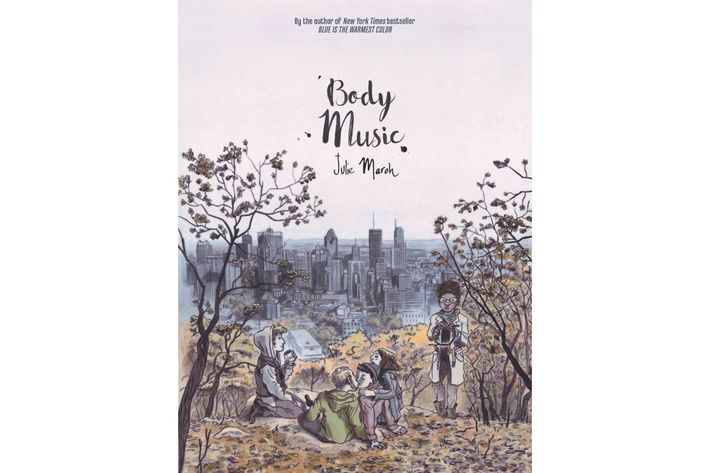
Body Music by Julie Maroh (Arsenal)
Body Music is a tender and soft-edged meditation on unconventional love and sex, and you’d expect no less from the creator of Blue Is the Warmest Color. Julie Maroh returns with a pulsing heat in this new collection of vignettes about romantic encounters that push and break boundaries — sometimes for good, sometimes for ill. A woman finds out her hookup partner is a trans man and they discuss what that means for them. A man ponders whether he can make a polyamorous relationship work. A man and his male lover debate the ethics of the former’s infidelity to his wife. A white fan seduces a black author. And yet, despite the running theme of intimacy between people who aren’t straight, cis, and white, the book doesn’t feel performatively woke. Perhaps that has something to do with the sumptuous artwork, with its pillowy lines, luscious sex scenes, and Greek-sculpture facial acting. Buy this one for someone who needs proof that comics can deal with identity politics without feeling stilted and aggravating.
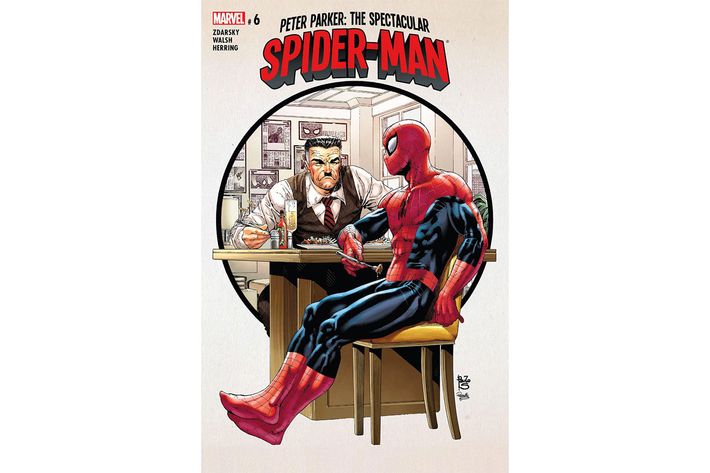
Peter Parker, the Spectacular Spider-Man by Chip Zdarsky, Michael Walsh, and Ian Herring (Marvel)
Really, it was only a matter of time before Chip Zdarsky started writing a Spider-Man series. In the past five-odd years, he’s established himself as one of the finest comedic minds in sequential art through his work on Howard the Duck, Jughead, and Kaptara, as well as his never-disappointing Twitter account and comic-con showmanship. He’s been wisely paired with the first great stand-up comic of comics, Spider-Man, on this new series, and it has yet to disappoint. There are zingers galore (as well as clever commentary on how Spidey’s trying to keep his zingers more sensitive these days, i.e. no more fat jokes about the Kingpin), the character relationships are lush, and the whole endeavor finds a sweet spot between empty frivolity and overbaked pathos. The underrated Michael Walsh takes over penciling duties for the next issue, and delight is near-guaranteed for all.

Monograph by Chris Ware (Rizzoli)
What a document. The auteur behind books like Jimmy Corrigan and Building Stories is so universally beloved and popularly recognized that he hardly needs any introduction, and yet here Chris Ware is, reintroducing himself to us in an astounding work of self-reflection. Monograph is a massive, well, monograph, one that sets out to tell the story of Ware’s life as an artist. Rough drafts and finished pieces from throughout Ware’s decades-long career are accompanied by text that alternates between the autobiographical and analytical. Though Ware is known for his inimitably clean line work, the book is anything but sterile — right from the jump, he writes frankly about hating himself and feeling unworthy of the book he’s crafting, but one doesn’t feel pity for him so much as admiration for the way he stands up when self-doubt tries to cripple him. Thanks for not giving up, Chris.
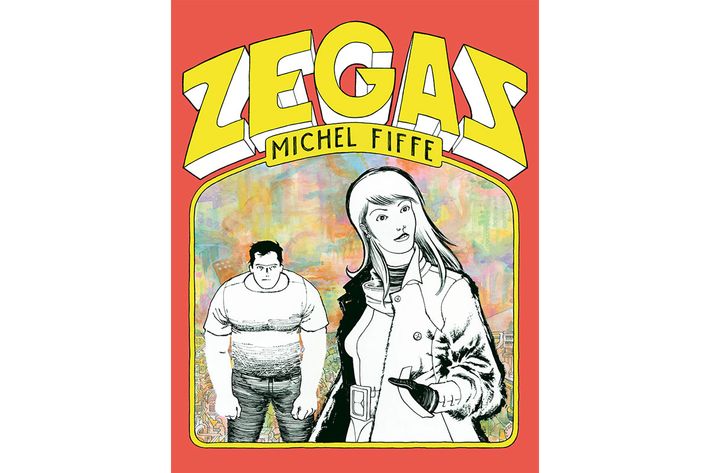
Zegas by Michel Fiffe (Fantagraphics)
Truly, we are blessed to be alive while Michel Fiffe is making comics. The writer-artist is perhaps best known for Copra, his long-running pastiche of and homage to superhero comics like Suicide Squad and The Punisher, but don’t sleep on his other major ongoing work, Zegas — collected here in a thick-stocked oversize volume. Hefty Boston and sly Emily are a brother-and-sister duo living an impoverished existence in a city that could be New York or could be the capital of Mars. Workplace drama intermingles with inconceivable plant life and surreal technology, adding up to a comic unlike anything else on stands … except, perhaps, Copra. Fiffe is a terrific storyteller, but his greatest gift is his ability to create a page — there’s no visual element that isn’t stunning, from the evocatively sonic lettering to the ever-fluxing panel borders.
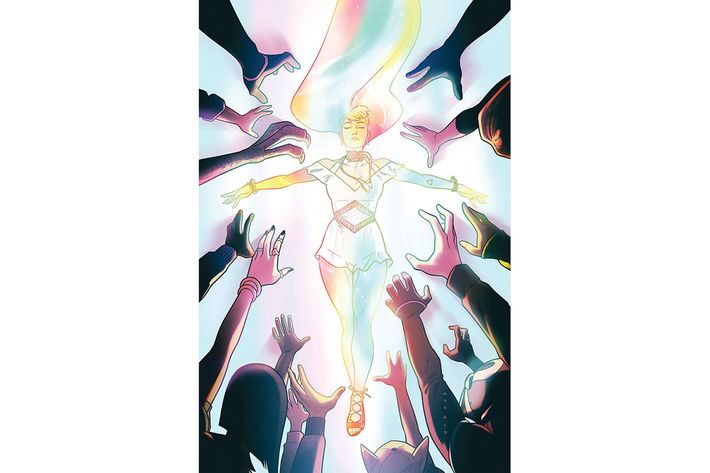
Runaways by Rainbow Rowell, Kris Anka, and Matthew Wilson (Marvel)
A new Runaways comic was, of course, bound to happen — after all, the youthful superteam has a screen translation hitting Hulu this fall. But Rainbow Rowell, Kris Anka, and Matthew Wilson have so far put together a series that feels anything but perfunctory. Rather than retread the original premise — kids find out their parents are supervillains and go on the run to fight back and right wrongs — the new Runaways picks up with some of the core characters struggling to make it through their 20s when the past catches up to them (I mean that literally — time travel is involved). The series is probably not for newbies, as a fair amount of familiarity and attachment to the gang is required, but if you’re already a Runaways stan, there’s a lot for you to love here.
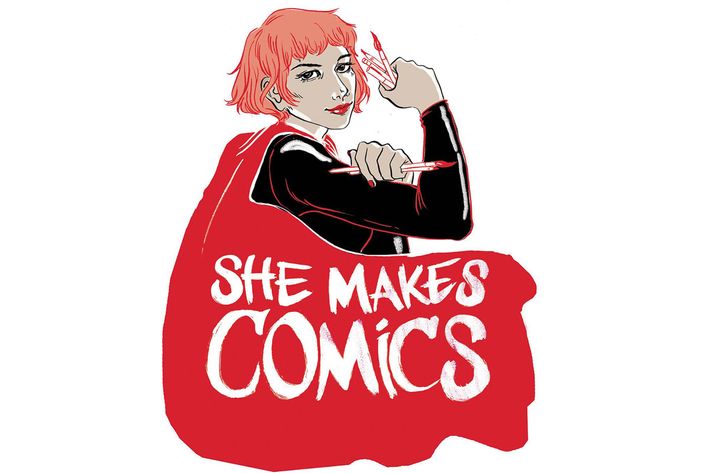
She Makes Comics by Marisa Stotter (XLrator Media)
Okay, this one is cheating for two reasons: (1) It’s a movie, and (2) it came out in 2014. But! It was just released on Netflix, and if you like comics enough to be looking at this list for recommendations, you like comics enough to benefit from watching She Makes Comics. This wide-ranging documentary covers the century-long history of women reading, making, and selling sequential art, and it’s essential viewing for anyone who wants to understand the history of the medium. Its greatest asset is the insanely deep bench of interviewees that director Marisa Stotter and her collaborators were able to assemble: everyone from pioneering DC artist of the 1950s Ramona Fradon, to Vertigo Comics founding editor Karen Berger, to underground comix legend Trina Robbins, to recent superstars like Marjorie Liu and Kelly Sue DeConnick. Dozens upon dozens of women’s voices are thrown into the mix, telling war stories, damning misogyny, recovering the forgotten past of female comics creators and readers, and envisioning a future where creativity and enthusiasm trump gender exclusivity.

